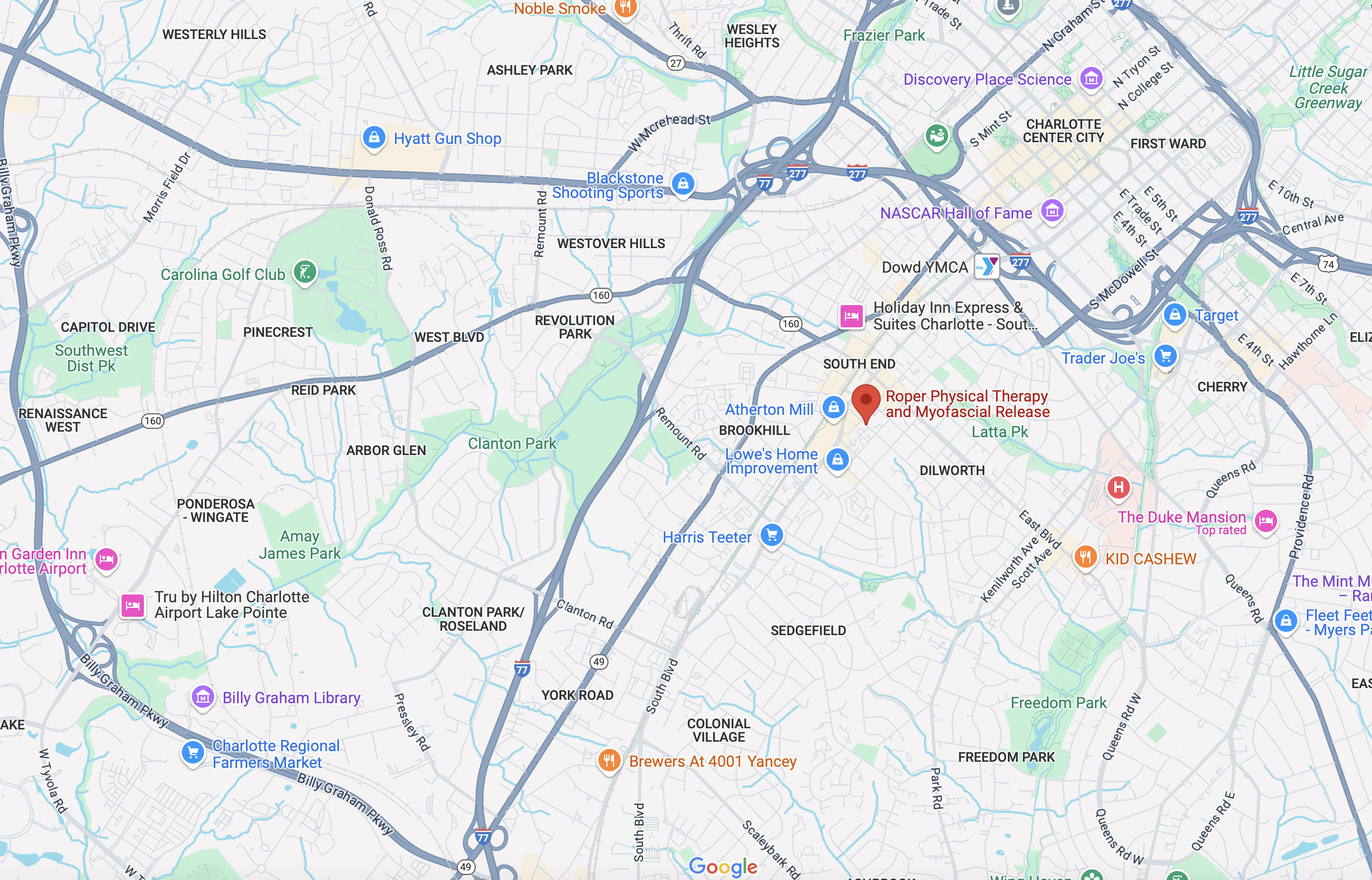October 9, 2025

Christine Roper, MSPT, PYT and co-creator Eva Boatsman

Stress can show up not just in your mind, but in your body. Have you ever felt your jaw tighten, shoulders creep up, belly in knots, and/or hips tighten? There’s a trio of deep muscles that can often be the reason for that tension we like to call the 3 P’s of the Tension Triad, the pterygoid, psoas, and piriformis. Making a zig zag pattern, tension in one of these places can create tension in others, and can be indicative of the body holding on to some kind of stressor or emotional response. So what actually happens?
The pyterygoid is where stress can begin at the jaw. It is tucked deep inside the cheek near the TMJ joint. These muscles are responsible for movement of the jaw, opening and closing, side to side, and forward movement. When life gets stressful, you may notice that you tend to unconsciously clench or grind your jaw, which is tightening the pterygoids. This tension, over time, can lead to jaw pain, headaches, and neck and shoulder tightness.
The psoas, a deep hip flexor, is crucial to the body’s fight or flight response, which is why we see it tightened in times of stress. It runs from the lower back to the femur, crossing the hip and connecting the upper and lower body. While it plays important roles in hip flexion and stabilization, the psoas is tied to the nervous system and can contract as a part of the fight-or-flight reflex when the body senses stress. Chronic shortening of the psoas can lead to low back pain, hip pain, and gut tension and constipation.
The piriformis, sits deep in the buttocks, on the back side of the hip joint, originating at the sacrum at the bottom of the spine and inserting on the upper thigh. This muscle works to externally rotate and stabilize the hip. The piriformis lies right over the sciatic nerve, so when compressed and tightened, it can cause tingling or radiating leg pain.
While all three muscles are in completely different regions, we know that our body is connected by a fascia and restrictions in one place can affect another. Fascia has the propensity through trauma, inflammatory processes, and poor posture to become solidified and shortened. It will organize along the lines of tension imposed upon it and due to its continuity can then produce bizarre and seemingly unrelated clinical results in adjacent areas of the body.
At Roper Physical Therapy, we provide custom, expert-led care that treats the whole person—not just the pain. We recognize that pain is often more than just a physical symptom, it’s your body’s way of signaling deeper needs. Our integrative approach blends traditional physical therapy with complementary practices like myofascial release, craniosacral therapy, and medical therapeutic yoga. Connect with us today or explore our current classes.
Source: Roper Physical Therapy
If you are still having pain let your MD know and consult a physical therapist.
At Roper Physical Therapy, we’re here to help you find the right path to health and a more confident, capable body. Whether you’re just starting out or looking to safely level up your training, a physical therapist can guide you through personalized strategies for effective, safe, and sustainable movement.
Book a session with one of our physical therapists today and let’s get started on building strength that lasts. Free Screen is available send your information through our Contact page.
Free consultations & classes are available to try.
Call us at (980) 298-6706 to learn more.
